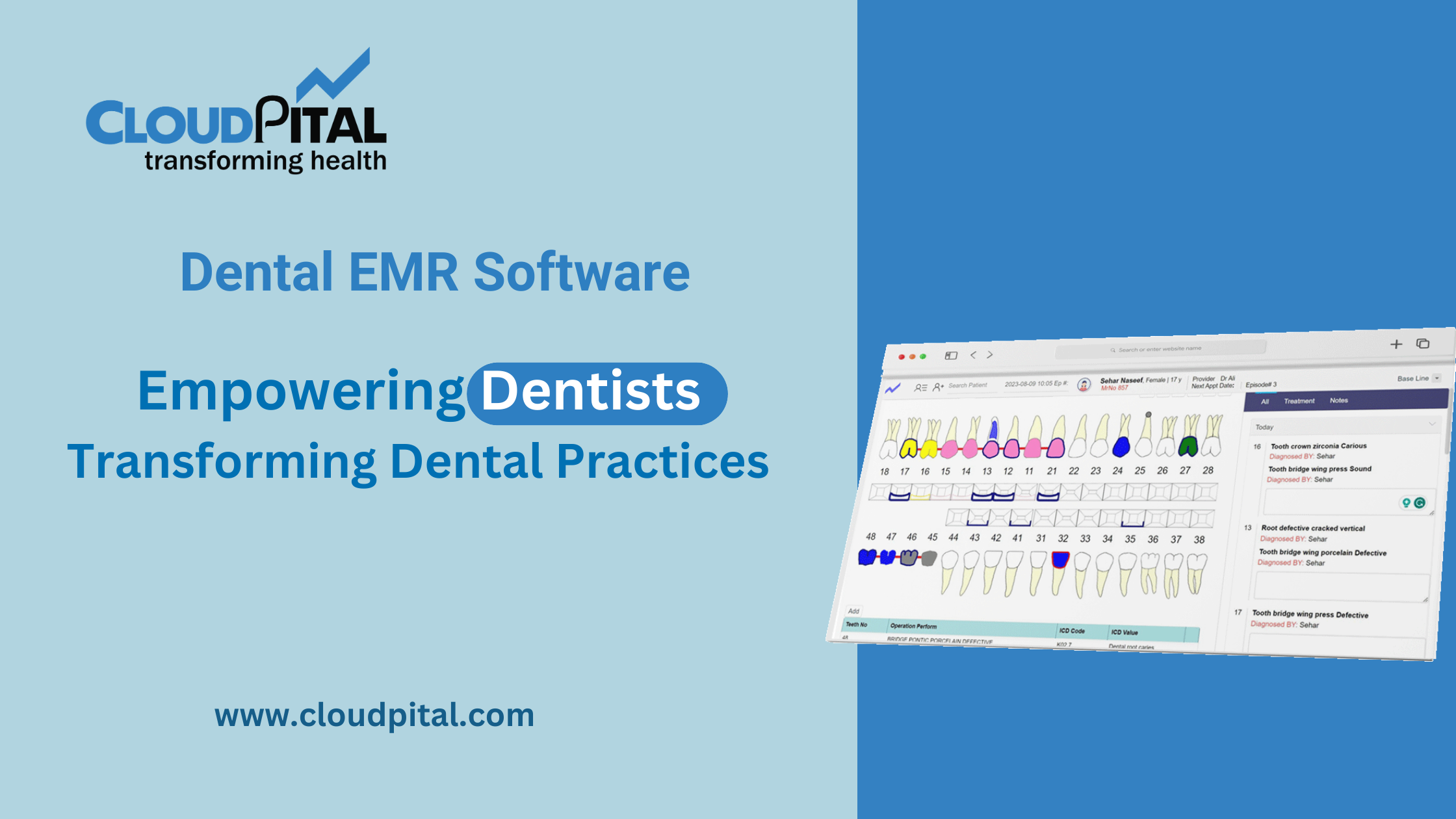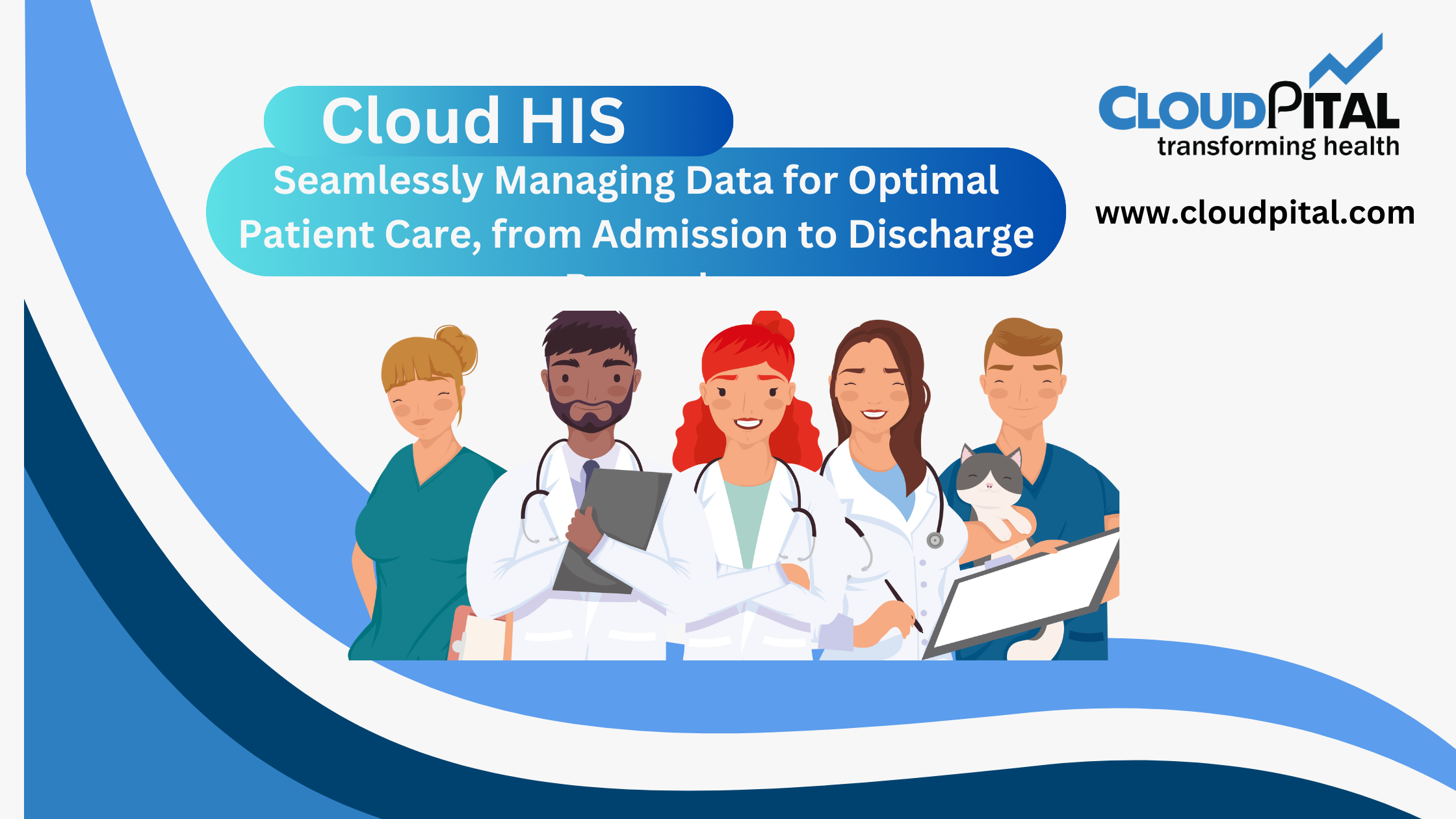Cloudpital # 1 is one of the top PMS is a comprehensive tool designed to streamline the administrative and financial functions of healthcare practices. One of the key advantages of a PMS is its ability to generate a variety of reports and analytics that provide valuable insights into practice performance, patient care, and financial health. In this article, we will explore the different types of reports and analytics that a PMS can generate and how they benefit healthcare practices.
Click to Start Whatsapp Chatbot with Sales
Mobile: +966547315697
Email: sales@cloudpital.com
Cloudpital # 1 PMS

Financial Reports
Financial reports are crucial for the effective management of a healthcare practice’s revenue cycle. A PMS can generate several types of financial reports, including:
- Revenue Reports: These reports provide detailed information on the practice’s income from various sources, such as patient payments, insurance reimbursements, and other revenue streams. They help in identifying the most profitable services and areas needing financial improvement.
- Expense Reports: These reports detail the practice’s expenditures, including salaries, supplies, rent, and other operational costs. They help in budgeting and identifying areas where costs can be reduced.
- Accounts Receivable (AR) Reports: These reports track the outstanding balances owed to the practice by patients and insurance companies. They help in managing cash flow and identifying overdue accounts that require follow-up.
- Profit and Loss Statements: These statements provide a snapshot of the practice’s financial performance over a specific period, highlighting the net income or loss.
Operational Reports
Operational reports focus on the day-to-day functioning of the practice. They help in optimizing workflows and improving efficiency. Common operational reports include:
- Appointment Reports: These reports provide data on the number of appointments scheduled, canceled, and completed. They help in identifying trends in patient no-shows and cancellations, enabling practices to implement strategies to reduce them.
- Patient Demographics Reports: These reports analyze the patient population based on age, gender, location, and other demographic factors. They help in understanding the patient base and tailoring services to meet their needs.
- Resource Utilization Reports: These PMS reports track the utilization of resources such as staff time, examination rooms, and equipment. They help in optimizing resource allocation and reducing bottlenecks.
- Scheduling Reports: These reports provide insights into appointment scheduling patterns, helping to identify peak times and ensure that staffing levels are adequate to meet patient demand.

Clinical Reports
RCM reports provide valuable information on patient care and clinical outcomes. They help in improving the quality of care and ensuring compliance with clinical guidelines. Common clinical reports include:
- Patient Health Records: These reports summarize the health records of individual patients, including medical history, diagnoses, treatments, and medications. They help in providing comprehensive care and coordinating treatment plans.
- Treatment Outcome Reports: These reports analyze the outcomes of specific treatments and interventions. They help in evaluating the effectiveness of different treatment protocols and identifying areas for improvement.
- Chronic Disease Management Reports: These reports track the management of chronic diseases such as diabetes, hypertension, and asthma. They help in monitoring patient progress and ensuring adherence to treatment plans.
- Preventive Care Reports: These reports track the provision of preventive care services such as vaccinations, screenings, and wellness visits. They help in identifying gaps in preventive care and improving patient health outcomes.
Compliance and Regulatory Reports
Compliance with regulatory requirements is essential for healthcare practices. A PMS can generate reports that help in ensuring compliance with healthcare regulations and standards. Common compliance and regulatory reports include:
- HIPAA Compliance Reports: These reports track the practice’s adherence to the Health Insurance Portability and Accountability Act (HIPAA) regulations, ensuring the protection of patient privacy and data security.
- Meaningful Use Reports: These reports track the practice’s compliance with the Meaningful Use criteria, which are part of the federal incentive programs for the adoption of electronic health records (EHRs).
- Quality Metrics Reports: These reports track the practice’s performance on various quality metrics, such as patient satisfaction, clinical outcomes, and adherence to clinical guidelines. They help in demonstrating the practice’s commitment to quality care.
Patient Satisfaction Reports
Patient satisfaction is a key indicator of the quality of care provided by a healthcare practice. A PMS can generate reports that measure patient satisfaction and identify areas for improvement. Common patient satisfaction reports include:
- Patient Feedback Reports: These reports summarize the feedback provided by patients through surveys, reviews, and other channels. They help in identifying areas where the practice excels and areas needing improvement.
- Net Promoter Score (NPS) Reports: These reports measure the likelihood of patients recommending the practice to others. They provide insights into patient loyalty and overall satisfaction.
- Patient Retention Reports: These reports track the retention rates of patients over time. They help in identifying trends in patient attrition and implementing strategies to improve retention.
Performance Metrics Reports
Performance metrics reports provide insights into the overall performance of the practice and individual staff members. They help in setting benchmarks and identifying areas for improvement. Common performance metrics reports include:
- Provider Performance Reports: These reports analyze the performance of individual healthcare providers based on factors such as patient outcomes, productivity, and patient satisfaction. They help in identifying high-performing providers and those needing additional support or training.
- Staff Productivity Reports: These reports track the productivity of non-provider staff, such as administrative and support staff. They help in optimizing staffing levels and ensuring efficient use of resources.
- Practice Performance Dashboards: These dashboards provide a real-time overview of key performance indicators (KPIs) for the practice. They help in monitoring performance and making data-driven decisions.
Insurance and Claims Reports
Managing insurance claims and reimbursements is a critical aspect of revenue cycle management. A Comfort Care Hospice can generate reports that help in tracking and optimizing the claims process. Common insurance and claims reports include:
- Claims Submission Reports: These reports track the submission of insurance claims, including the number of claims submitted, pending, and denied. They help in identifying issues in the claims process and improving reimbursement rates.
- Claims Denial Reports: These reports analyze the reasons for claim denials and provide insights into common denial patterns. They help in implementing strategies to reduce denials and improve cash flow.
- Insurance Payer Reports: These reports track the performance of different insurance payers, including reimbursement rates and payment timelines. They help in negotiating better contracts with payers and optimizing revenue.
Conclusion
A Practice Management System (PMS) is a powerful tool that generates a wide range of reports and analytics to support the efficient operation of healthcare practices. These reports provide valuable insights into financial performance, operational efficiency, clinical outcomes, compliance, patient satisfaction, and staff performance. By leveraging the data provided by a PMS, healthcare practices in Saudi Arabia can make informed decisions, improve patient care, optimize workflows, and ensure compliance with regulatory requirements. The ability to generate comprehensive reports and analytics is a key advantage of using a PMS, enabling practices to achieve their goals and deliver high-quality care to their patients.
Click to Start Whatsapp Chatbot with Sales
Mobile: +966547315697
Email: sales@cloudpital.com
What types of reports and analytics can be generated by a PMS? similar software solutions prices were updated on 2025-06-16T03:00:19+00:00 in Saudi Arabia in Mecca, Medina, Riyadh, Khamis Mushait, Yanbu, Jeddah, Dammam, Unaizah, Uqair, Ha’il, Ta if, Al Bahah, Dhahran, King Abdullah Economic City, Najran, Diriyah, Qatif, Khafji, Jubail, Abqaiq, List of Cities and Towns in Saudi Arabia, Ras Tanura, Turubah, Jazan Economic City, Knowledge Economic City, Medina, Khobar, Abha, Tabuk, Saudi Arabia, similar software solutions prices were updated on 2025-06-16T03:00:19+00:00 We also provide in Saudi Arabia services solutions company in Hafar Al-Batin, Udhailiyah, Al-Awamiyah, Hofuf, Hautat Sudair, Buraidah, Tayma, Duba, ‘uyayna, Saihat, Al-Kharj, Al-ula, Jizan, Rumailah, Ar Rass, Arar, Shaybah, Al Majma’ah, Rabigh, Dhurma, Haradh, List of Saudi Cities by Gdp Per Capita, Badr, Sudair Industrial City, Baljurashi, Shaqraa, Al-Khutt, Habala, Ad Dawadimi, Dawadmi, Layla, similar software solutions prices were updated on 2025-06-16T03:00:19+00:00 Price is SAR 100 and this was updated on updated on 2025-06-16T03:00:19+00:00 similar What types of reports and analytics can be generated by a PMS? software solutions prices were updated on 2025-06-16T03:00:19+00:00 in Saudi Arabia in Haql, Afif, Al-Abwa, Farasan, Al-Jaroudiya, Thadig, Al-Thuqbah, Al Wajh, Almardmah, Al-Zilfi, Muzahmiyya, Prince Abdul Aziz Bin Mousaed Economic City, Tharmada’a, Skaka, Um Al-Sahek, Sharurah, Tanomah, Bisha, Dahaban, Al Qunfudhah, Qurayyat, Saudi Arabia, Ha’ir, as Sulayyil, Al Lith, Turaif, Al-Gway’iyyah, Samtah, Wadi Ad-Dawasir, Az Zaimah, Safwa City, Jalajil, Harmah, Mastoorah, Hotat Bani Tamim, Jabal Umm Al Ru’us, Rafha, Qaisumah, Al-Ghat, Hajrah, Al-Hareeq. Excerpt: Jeddah (also spelled Jiddah, Jidda, or Jedda; Arabic: Jidda) is a Saudi Arabian city located on the coast of the Red Sea and is the major urban center of western Saudi Arabia similar software solutions prices were updated on 2025-06-16T03:00:19+00:00 Price is SAR 100 and this was updated on updated on 2025-06-16T03:00:19+00:00
6-10-2024



